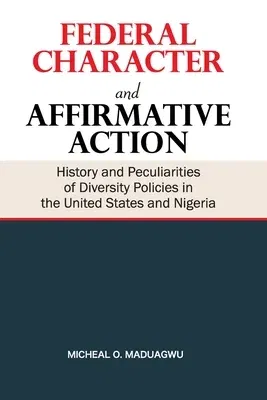Michael Maduagwu
(Author)Federal Character and Affirmative Action: History and Peculiarities of Diversity Policies in the United States and NigeriaPaperback, 14 August 2019

Qty
1
Turbo
Ships in 2 - 3 days
In Stock
Free Delivery
Cash on Delivery
15 Days
Free Returns
Secure Checkout
Print Length
260 pages
Language
English
Publisher
Safari Books Ltd
Date Published
14 Aug 2019
ISBN-10
9785544850
ISBN-13
9789785544855
Description
Product Details
Author:
Book Format:
Paperback
Country of Origin:
US
Date Published:
14 August 2019
Dimensions:
23.39 x
15.6 x
1.4 cm
Genre:
Multicultural
ISBN-10:
9785544850
ISBN-13:
9789785544855
Language:
English
Pages:
260
Publisher:
Weight:
367.41 gm

